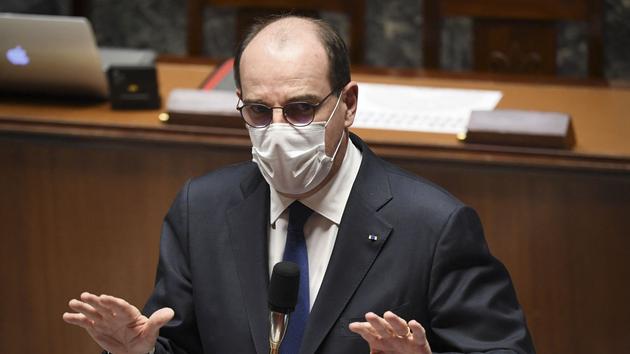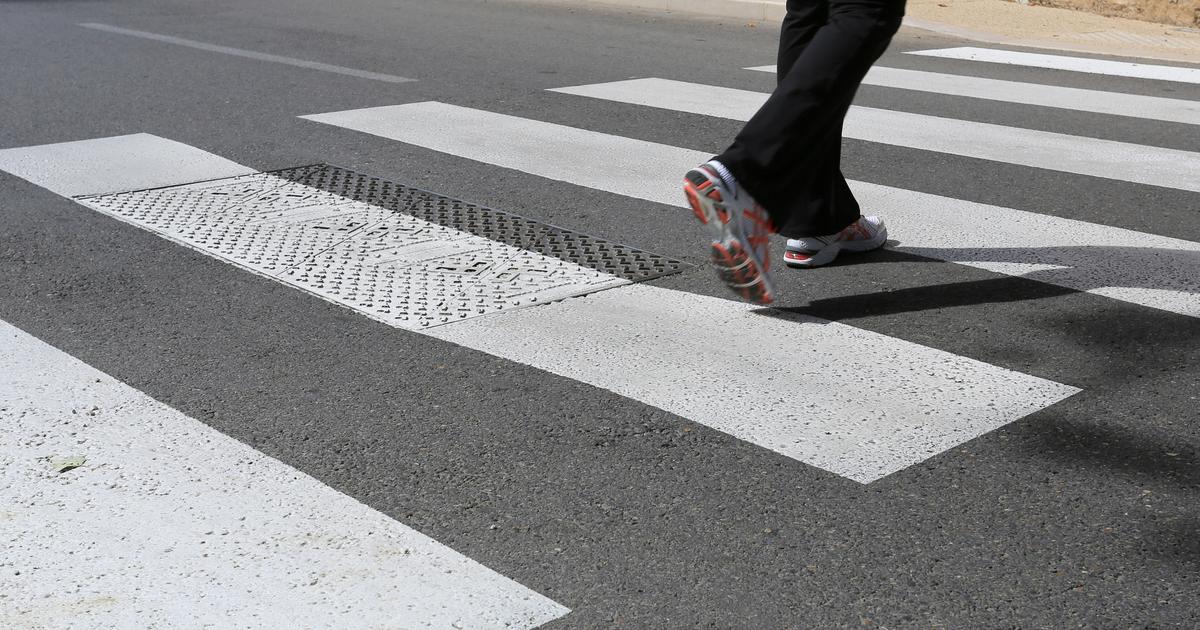Consultant and political analyst, Mathieu Slama works for several media, notably Le Figaro and Le Huffington Post. He has published
The War of the Worlds, Reflections on Putin's Crusade Against the West
, (ed. De Fallois, 2016).
One endless day.
This is the feeling given to us by the interview with Jean Castex yesterday on BFM TV, during which the Prime Minister came back extensively on the government's health strategy and on the worsening health situation, especially in Île-de-France.
No announcement, and only one clarification to the question of a possible reconfinement: “
we'll see
”.
A pure exercise in communication, therefore, which adds to the long list of useless government interviews, without announcement and therefore without interest.
For a year, government speech has been exhausted as it sinks into commentary and paraphrase, while the permanent contradictions and about-faces have ended in discrediting a communication whose logic and meaning are difficult to understand.
But the essential is not there.
In this interview, Jean Castex addresses the French as if they were children, calling by their first name the two journalists present, evoking a "
Mr. the English variant
" to explain the difficulty of adapting to the situation facing the 'emergence of new forms of the virus, or even concluding the interview by affirming that he will be a happy Prime Minister the day he can say to the French: "
That's it, it's over, you can kiss each other
".
The government has appropriated paternalistic and guilty language and rhetoric, urging the French to be responsible, united and altruistic.
There is, in this absurd concluding sentence, the symbol of all the political and democratic bankruptcy that has been overwhelming us for a year now.
The next morning on RTL, Martin Hirsch, director of the Assistance Publique-Hôpitaux de Paris, spoke out in favor of the implementation of strict containment measures and added that the French should "
only do the essential things
", and that they had to do quick tests when they went out to shop or see people.
For a year, politics has disappeared to make way for a management of the population very similar to what Michel Foucault described in his reflections on biopolitics at the Collège de France.
Faced with the epidemic, the government has worked to enact very strict disciplinary rules, ranging from confinement to curfew, the closure of many places of sociability to hygiene rules such as wearing a mask on the beach. public highway.
These rules, dictated by an opaque Scientific Council and without any democratic legitimacy, punctuate the daily life of the French without any hope of exit being, for the moment, considered.
This authoritarian and undemocratic health policy, decided by a single man, Emmanuel Macron, and an unelected body, the Scientific Council, was accompanied by an infantilizing and managerial communication strategy whose goal is, by the government's own admission , to promote the “
acceptability
” of the measures.
The government therefore appropriated a paternalistic and guilty language and rhetoric, urging the French to be responsible, united and altruistic.
Beware of those who do not respect the rules, because they are considered irresponsible and their behavior criminal.
The "
We are a nation of united citizens
" launched by Emmanuel Macron at the dawn of the second confinement was precisely part of this communication strategy.
This imposed solidarity is the justification for all the liberticidal measures taken so far.
Read also:
Government and influencers: "The red line between propaganda and communication has been crossed"
In the name of solidarity, the government forcibly imposes its rule and extinguishes any possibility of democratic debate.
In fact, he considers the French as citizens under supervision, whose every act and gesture must be controlled.
The government, in its paternalistic managerial strategy, applies the behavioral strategies used in particular in marketing or town planning that are commonly called the “
nudge
”.
To put it simply, the government has applied behavioral science to its health strategy.
The main purpose of the derogatory exit certificate was to dissuade the French from leaving their homes by imposing an administrative constraint on them in addition to the physical constraint of travel.
Recently, the government adopted a decree authorizing the monitoring of the “
mask-wearing rate
” in public transport by a video surveillance system.
Here again, it is difficult not to see in this measure the desire to encourage public transport users to put on their masks correctly, with surveillance cameras playing a role similar to what Foucault described in his analysis of Bentham's panopticon, system in which each citizen, knowing that he is being watched, acts in accordance with the rules imposed on them.
One would have thought that this crude and anti-democratic strategy would arouse massive public rejection.
On the contrary, it did not find any major opposition.
The great paradox of this situation is that the government keeps urging the French to be responsible while increasing the mechanisms of control and discipline to force the French to behave in the way it wishes.
The government's disciplinary policy has been accompanied by rigorous and often arbitrary police control, the aim of which has been, from the outset, to dissuade potential recalcitrant from breaking the rules.
The notion of responsibility put forward by the government is in fact a negation of this principle: it is not a question of making individuals responsible but of protecting them against themselves and against their fellow citizens.
This paternalistic communication strategy admits of no opposition.
The government's only obsession is “
pedagogy
”, this way of considering that its approach is not contestable and that if opposition exists, it is because they have misunderstood the meaning of government action.
Jean Castex, during his recent interview with Samuel Etienne on the live video platform Twitch, answered the question of whether he regretted certain measures adopted by the government: "
we should have explained better
".
One would have thought that this crude and anti-democratic strategy would arouse massive public rejection.
On the contrary, it did not find any major opposition.
The most serious measures have become normalized, and the question now is what, between full containment or partial containment, is better.
To read also:
"In this crisis, the Council of State endorsed the infantilization of the French"
The very idea that this containment measure could be ethically and democratically indefensible does not occur to anyone, and opposition to these measures has been confined to extremes.
Government communication worked because it acted on the guilt and moralization of behavior.
Anyone who opposes the rules is accused of playing the game of spreading the virus.
Media doctors, unwavering supporters of government strategy, also insist on these notions of moral obligation towards others.
"
The life of others depends on our good behavior
", they tell us all day long on the sets.
Our country, traditionally rebellious, has dozed off in the face of this permanent and insidious guilt.
This new sanitary puritanism, whose rules infringing on freedoms are taken in the name of Good, ousted from the public place any serious opposition.
We are living through the difficult experience of an eclipse of the rule of law that seems to have no end.
The intellectuals themselves found themselves incapable of contradicting this new moral order, with the exception of a few courageous minds including Giorgio Agamben who immediately saw the unprecedented and dangerous nature of the health measures taken.
For the past year, we have been witnessing an unprecedented depoliticization of public debate and the hegemony of a managerial and bureaucratic vision of public policies.
The governmental paternalism that we have just described is a symptom of a major and unprecedented democratic crisis.
By thus moralizing health policy, the government is exempt from reflecting on its own shortcomings.
Because to point the finger at the behavior of the French, it is to forget a little quickly the errors of the State in its management of the crisis, contradictory injunctions on the mask until the incapacity, justified or not, to open more beds in intensive care units, without forgetting the hazardous organization of the vaccination strategy, the comparison of which with our neighbors is not to our advantage.
It is also forgetting the way in which our freedoms have evaporated, and in which legislative or constitutional checks and balances have been removed without anyone, or almost, being moved by them.
Each retreat prepares another.
We are living through the difficult experience of an eclipse of the rule of law that seems to have no end.
It is to be hoped that the upcoming electoral campaign opens up the possibility of the democratic debate which has not yet taken place, and that it will also be the occasion for awakening the consciences asleep by the moralizing and guilty speech of the government.
Voluntary servitude is only voluntary because it turns into a habit, and this is exactly what La Boétie described a few centuries ago.
We must step out of the dangerous comfort of habit.









